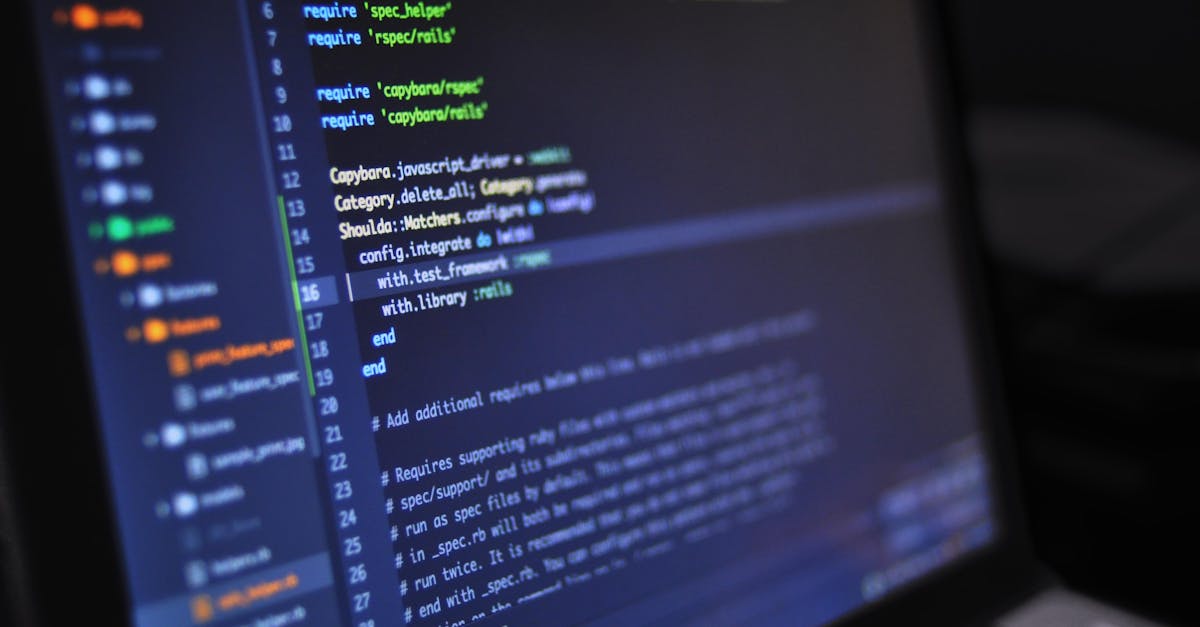Nov 1, 2024
Refactoring code techniques

Refactoring code techniques are like polishing a rough diamond, bringing out its true brilliance by enhancing its clarity and shine. In the fast-paced world of software development, where constraints like time and evolving requirements are constant companions, the importance of maintaining clean, efficient, and robust code cannot be overstated.
Good code refactoring not only improves the readability and organization of code but also lays a solid foundation for future development. It is a process of restructuring existing code without changing its external behavior, aiming to make the code more comprehensible and easier to maintain.
In the same fashion, refactoring can help eliminate redundancies, reduce complexities, and enhance the overall quality of the codebase. It allows developers to weed out inefficiencies and design flaws that might have crept in during the initial development phase. By continuously refining the code, developers can adapt it to meet new requirements, incorporate emerging best practices, and ensure its long-term sustainability.
Ultimately, embracing code refactoring is not just a good practice; it is a mindset that fosters continuous improvement and excellence in software development. As a matter of fact, the ability to refactor code effectively is a hallmark of a skilled developer who values craftsmanship and strives for perfection in their work. As the saying goes, "The only way to go fast is to go well," highlighting the importance of taking the time to refactor and optimize code for the long run.
Equally important, refactoring code techniques contribute significantly to the overall efficiency and reliability of a software system. By streamlining the codebase and enhancing its structure, developers can prevent potential bugs, decrease maintenance costs, and facilitate collaboration among team members. A well-refactored codebase serves as a solid pillar that supports the continuous evolution and scalability of a project.
Moreover, refactoring code is not just about making the code cleaner; it is about fostering a culture of craftsmanship and discipline within development teams. It encourages developers to take pride in their work, strive for excellence, and hold themselves accountable for the quality of the code they produce. Through refactoring, developers learn to embrace feedback, iterate on their solutions, and push themselves to continuously improve their coding skills.
On the other hand, neglecting the practice of code refactoring can lead to a variety of challenges down the road. In reality, codebases that are riddled with technical debt and code smells are prone to becoming unwieldy, error-prone, and difficult to maintain. Without regular refactoring, a codebase can quickly deteriorate, hampering the productivity of developers and hindering the progress of a project.
Another key point to emphasize is that code refactoring is not a one-time activity but an ongoing process that should be integrated into the development workflow. By incorporating refactoring tasks into regular development cycles, teams can ensure that the code remains clean, flexible, and adaptable. This iterative approach fosters agility, encourages collaboration, and empowers developers to respond swiftly to changing requirements and market conditions.

Optimizing your Code through Refactoring Techniques
For instance, when code is refactored regularly, developers can spot and rectify potential issues before they escalate into major problems. This proactive approach not only enhances the stability of the codebase but also promotes a culture of quality assurance within the development team. By addressing small issues promptly, developers can prevent them from snowballing into significant challenges that may disrupt the project timeline or compromise the functionality of the software.
In this situation, it becomes evident that investing time and effort in code refactoring upfront can yield substantial long-term benefits. Through continuous refinement and restructuring, developers can ensure that the code remains agile, scalable, and adaptable to meet evolving business requirements and technological advancements. A prime example being how refactoring paves the way for incorporating new features seamlessly, without causing undue complications or introducing hidden bugs.
Due to the dynamic nature of software development, where change is a constant presence, the practice of code refactoring plays a crucial role in sustaining the health and vitality of a project. Developers who prioritize refactoring as an integral part of their workflow demonstrate a commitment to excellence and a proactive stance towards mitigating potential risks. In essence, by embracing code refactoring as a fundamental aspect of software development, teams can cultivate a culture of continuous improvement and deliver high-quality, reliable solutions to their users.
It is evident that code refactoring is a crucial practice that not only enhances the quality and maintainability of code but also fosters a culture of continuous improvement and excellence within development teams. By embracing the principles of code refactoring and integrating them into the development workflow, teams can ensure that their code remains robust, adaptable, and efficient in the face of evolving requirements and technological advancements.
Refactoring code techniques serve as a compass guiding developers towards cleaner, more streamlined code that is easier to maintain and build upon. It is an investment in the long-term health and sustainability of a project, enabling teams to respond effectively to changing circumstances and market demands. Through regular refactoring, developers can stay ahead of challenges, prevent technical debt from accumulating, and deliver high-quality solutions that meet and exceed user expectations.
In conclusion, code refactoring is not just a technical task but a mindset that promotes excellence, collaboration, and adaptability in the ever-changing landscape of software development. It is a practice that empowers developers to take ownership of their work, strive for perfection, and continuously enhance their skills. By making code refactoring an integral part of the development process, teams can set themselves up for success, building software solutions that stand the test of time and deliver value to their users.

Title
I'm a paragraph. Click here to add your own text and edit me. It's easy.

Title
I'm a paragraph. Click here to add your own text and edit me. It's easy.

Title
I'm a paragraph. Click here to add your own text and edit me. It's easy.
